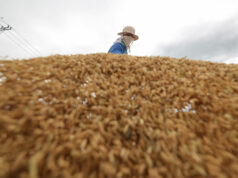Rural banks to be given credit data access
INFORMATION solutions firm TransUnion Philippines plans to provide all rural banks in the country access to credit reports by 2022.
The firm said it has already enrolled in its system 100 out of over 400 rural banks this year.
“We are expecting a gradual change in our customer base as rural bank data comes in. Once all are onboarded, we are expecting a few million records to come in from this segment alone,” TransUnion Philippines President and Chief Executive Officer Pia Arellano said in an e-mail on Wednesday.
TransUnion signed a partnership with the Rural Bankers Association of the Philippines in August 2019 to allow the sharing of customers’ financial data.
TransUnion collects the data online and analyzes them to determine customers’ risk scores to ease their application for various loans and help banks design loan products to suit different customer segments.
“Providing rural banks with a more complete picture of a person’s creditworthiness helps open up more financial possibilities, giving consumers access to credit that might have been inaccessible to them before this partnership,” Ms. Arellano said.
A study by the World Bank in 2019 said banks can reduce bad loans by 22-45% with the use of an efficient credit database.
However, TransUnion said the lack of internet connection or better online services in several parts of the country has limited rural banks’ access to credit reports.
“Connectivity of rural banks located in the far flung areas are having a hard time having the IT [information technology] infrastructure needed in order to have access to credit reports. We are constantly working with our IT team in finding alternative solutions that could help fill this gap,” Ms. Arellano said.
“The availability of accurate and more extensive credit information is an important catalyst to an efficient credit ecosystem which can help fuel and support further economic growth,” she added.
State-run Credit Information Corp. (CIC), which coordinates with private firms to build its credit database, reported it is already receiving data from 534 financial entities, including rural banks.
The CIC said most of the data started coming in from rural banks last year, along with cooperatives as the underserved sectors. — K.K.T. Jose



